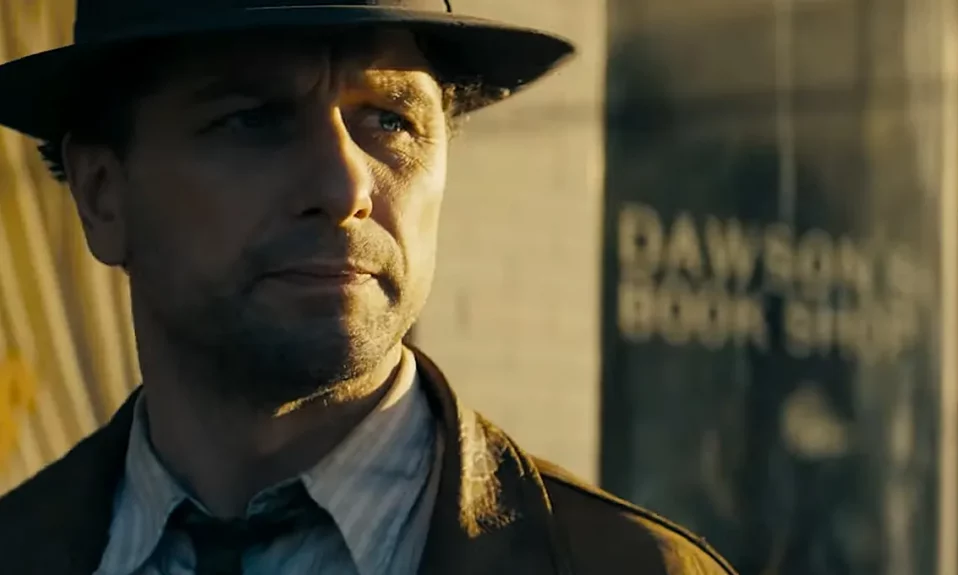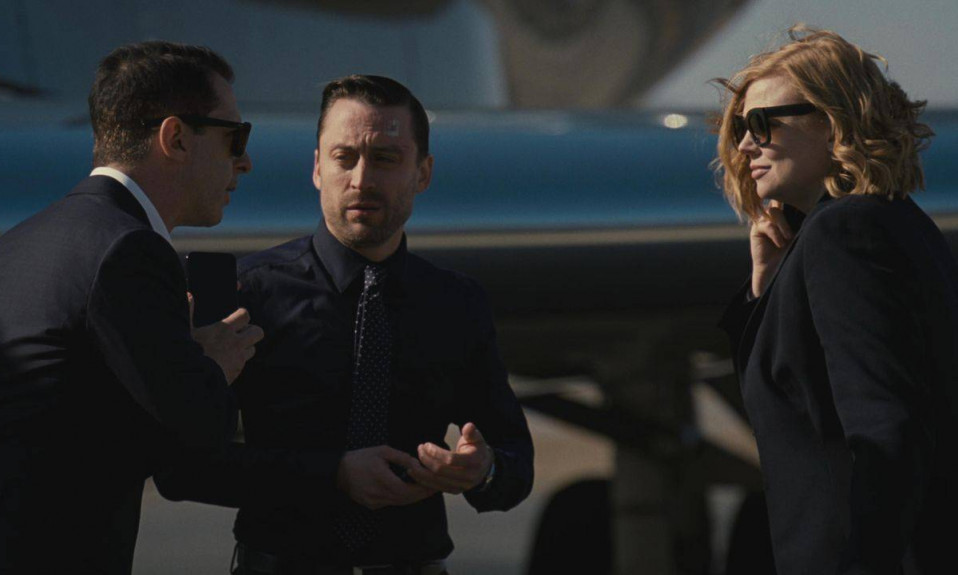At the same time, the blue eyes of Perry Mason (Matthew Rhys) look tired and determined, the former private detective turned defence attorney tries to move in silence alongside his investigator Paul Drake (Chris Chalk), but they are caught by the crooked Detective Holcomb (Eric Lange) who runs an illegal gambling arena inside a boat in the shores of the 1930’s Los Angeles. The duo barely escapes the vice den but now they know that they have bargain leverage after seeing what lies in the vessel.
HBO’s Perry Mason (2020-2023) brought a 21st Century take on the character from detective novels created by Erle Stanley Gardner in 1933, who also appeared in radio, movies and had its most famous portrayal in the CBS’ Perry Mason (1957-1966) series starred by the very skilled Canadian actor Raymond Burr (Rear Window), who would later come back to Mason’s TV movies until his death in 1993. Burr is the most associated face with Mason though there is a whole plethora of names that interpreted the attorney.
The HBO drama gives Mason an origin story as the other interactions followed him already as a lawyer willing to defend the oppressed. In this series, Mason is a broken man, struggling with PTSD, alcoholism and investigating love affairs to make a living as a P.I. Fans of the previous adaptations won’t behold the ‘Perry Mason moment’ when in the courtroom, Mason marvelled the jury when he saved his clients from wrongful convictions at the last minute by putting the real guilty party on the stand and making them expose their venom while watched by the courtroom.
British actor Mathew Rhys strays away from his predecessors by interpreting a troubled man who employs unorthodox methods, and, even with good intent, he lacks the experience and what unfolds are character studies of the protagonist and of the other members of the cast.
The premiere season revolves around the disturbing kidnapping and murder of a baby and by the later episodes Mason enters the world of lawyers to not let the accused party fend off by themselves while also dealing with a religious cult. In the second season, the story focuses on a pair of Mexican-American brothers accused of murdering an oil heir, and they feel the weight of a rigged system and the hatred of the populace piled up with the invisible hands that really rule Los Angeles.
One of the aspects that makes Perry Mason stand out from its contemporaries is the nuanced representation of minorities while not indulging in lecturing nor painting them as victims. Paul Drake is a law enforcement member turned P.I. who can’t climb the ranks due to his skin colour and he and his relatives endure surviving in a city that doesn’t welcome them and only sees them as people for undesirable work or entertainers.
Della Street (Juliet Rylance) is a closeted lesbian who aspires to be something more than a competent secretary; Street lives under the unwritten rule of minorities have to be three times better than their peers to make half or even less. But not everything is sadness, because, in the Hollywood screenwriter Anita St. Pierre (Jen Tullock), Street finds a love that takes her away from the stress that a career in law charges.
In the character of St. Pierre, the series finds its metalanguage for what is to navigate in Hollywood and being part of the LGBTQIA+ community which is a considerable part of the backbone of this institution but is shamefully relegated to the shadows. Surrounded by luxury St. Pierre has to hide her true colours as it still happens today.
The realistic portrayal gives their moments a tenderness akin to Brokeback Mountain (2005). Tullock is one of the most interesting actors to join in season two. The city and the times compose two other characters: an art deco Los Angeles with its warm weather under orangish landscapes that is bound to become a powerhouse. L.A. is not new to detective stories as in L.A. Confidential (1997) or To Live and Die in L.A. (1985), still Mason brings its own flair to the City of Damned Angels.
Perry Mason navigates from impoverished neighbourhoods and shanty towns to the mansions and halls of power in a way that Michael Mann showed in the Miami Vice series. Mason does it with its own codes in the early 20th Century West Coast where elegance is not too distinctive from decadence. Well-acted and written, it is pleasing to the senses, still even all the charm of that era won’t save the Los Angelinos from the darkness that fuels the stories. The technical aspects of the series give it a high-end appeal.
HBO lost a great opportunity by cancelling it, and the team didn’t have at least a third season or a special movie to wrap the narratives and present how the former detective Mason played by Rhys became the paladin of justice interpreted by Burr or something of his own.
Also Read: Miami Vice: The Revolutionary Series That Changed the Landscape of TV and Cinema













